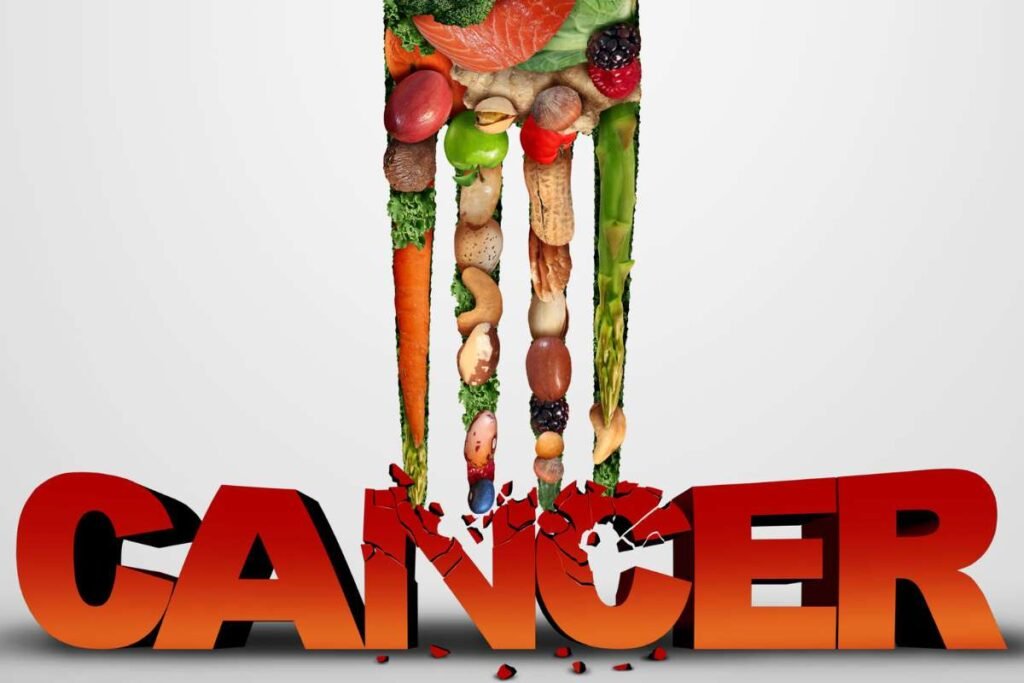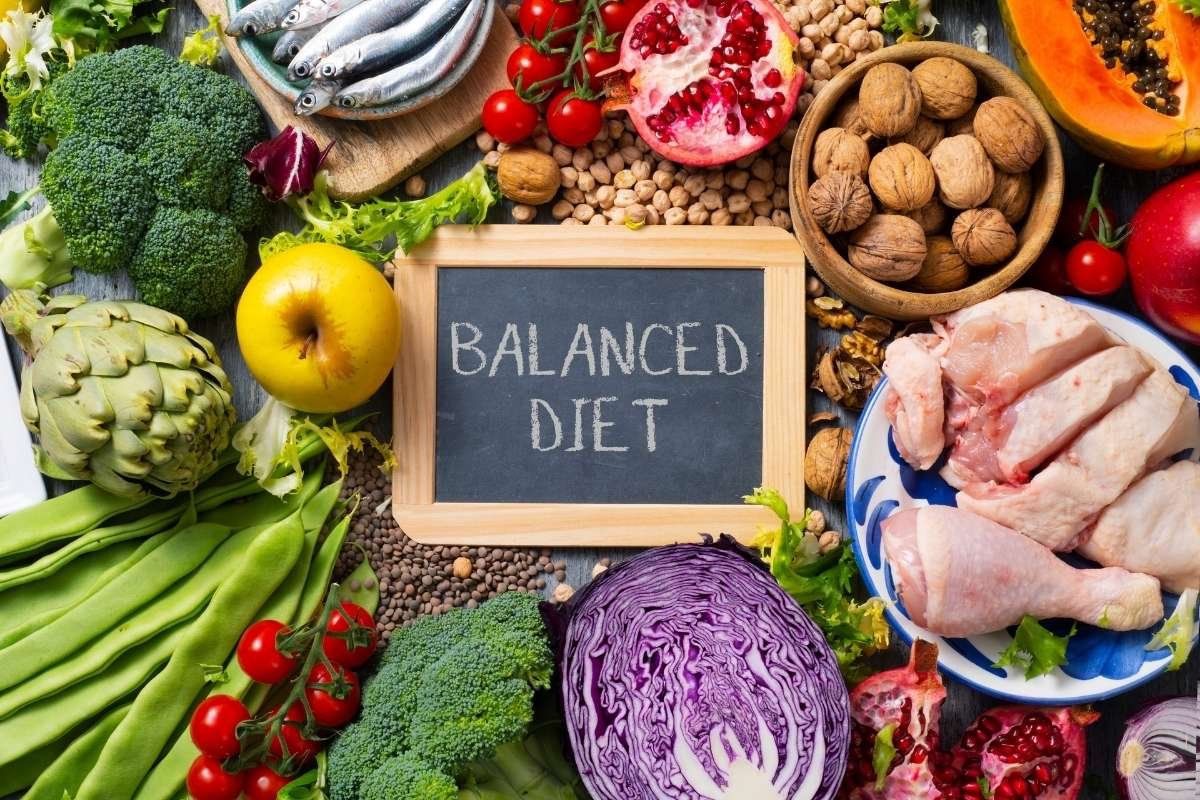Cancer is a debilitating disease. It can present itself in various forms throughout the human body. Hence, it is vital to do what we can to prevent it. One of the ways in which we can do this is by regulating our diet.
What we consume can greatly affect our chances of getting a chronic disease. And while no single food can guarantee complete immunity, we can certainly create a diet for cancer prevention. But we must first understand how our diet affects our risk of getting cancer.
How are Cancer and Diet Linked?
A person’s chance of getting cancer can highly depend on the type of food that he is consuming. The main factor that links our diet to cancer is body weight. High-energy and high-fat diets can lead to obesity, which can, in turn, increase the risk of cancer. Eating lots of sugary foods or drinks can lead to an increase in weight gain. The same goes for ultra-processed foods or foods that have a high amount of salt.
Conversely, eating a healthy and balanced diet can help you maintain your weight. Diet is just one lifestyle factor that affects the chances of cancer, but it is an important one. That is why different types of diets can reduce the risk of getting cancer. What are they?
Here are 5 Diets for Cancer Prevention
1. Lacto-Ovo Vegetarian Diet
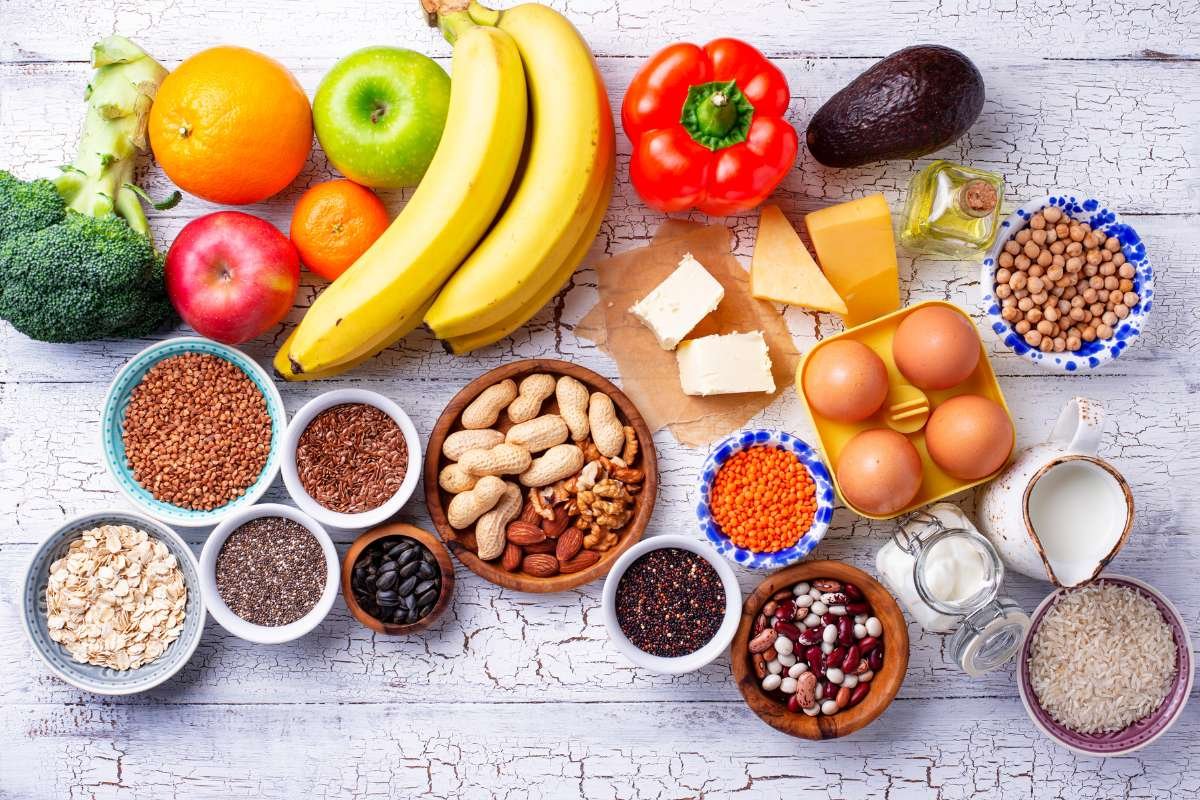
A vegetarian diet as a whole can consistently lower the risk of cancer. Compared to other diets that include fish or meat, the Lacto-Ovo Vegetarian diet reduces the overall chances of causing cancer. This is a plant-based diet that excludes meat, poultry, and fish but includes dairy and egg products. The name lacto-ovo comes from ‘lacto’, which means dairy, and ‘ovo’, which means eggs. Foods that are included in this diet are:
- Fruits: Apples, bananas, strawberries, oranges.
- Vegetables: Broccoli, kale, eggplant, mushrooms, bell peppers
- Whole Grains: Quinoa, barley, buckwheat, amaranth
- Dairy: Eggs, milk, yogurt, cheese
2. Pesco-Vegetarian Diet (Pescatarian Diet)
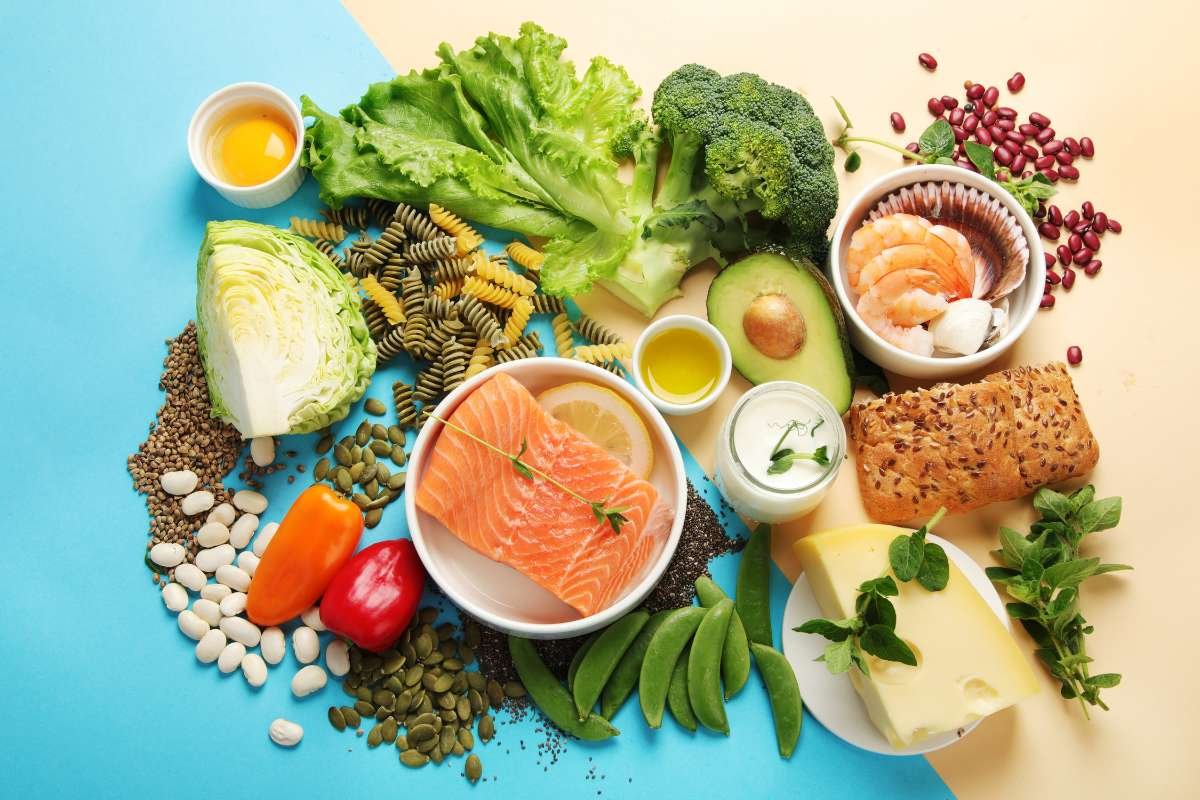
A Pescatarian diet involves the addition of fish and seafood to a vegetarian diet. This diet mainly excludes red meat and poultry. Many pescatarians can also eat dairy and eggs. According to the American Institute of Cancer Research, pescatarian diets show a lower overall risk of cancer. The study shows that U.S citizens who were pescatarians showed a low risk of pescatarian cancer. Limited evidence suggests links between eating fish and a lower chance of cancer. Foods included in the diet are:
- Fish: Shellfish, and other Seafood
- Whole Grains: Quinoa, barley, buckwheat, amaranth
- Dairy: Eggs, milk, yogurt, cheese
- Vegetables: Broccoli, kale, eggplant, mushrooms, carrots, potatoes
3. Vegan Diet
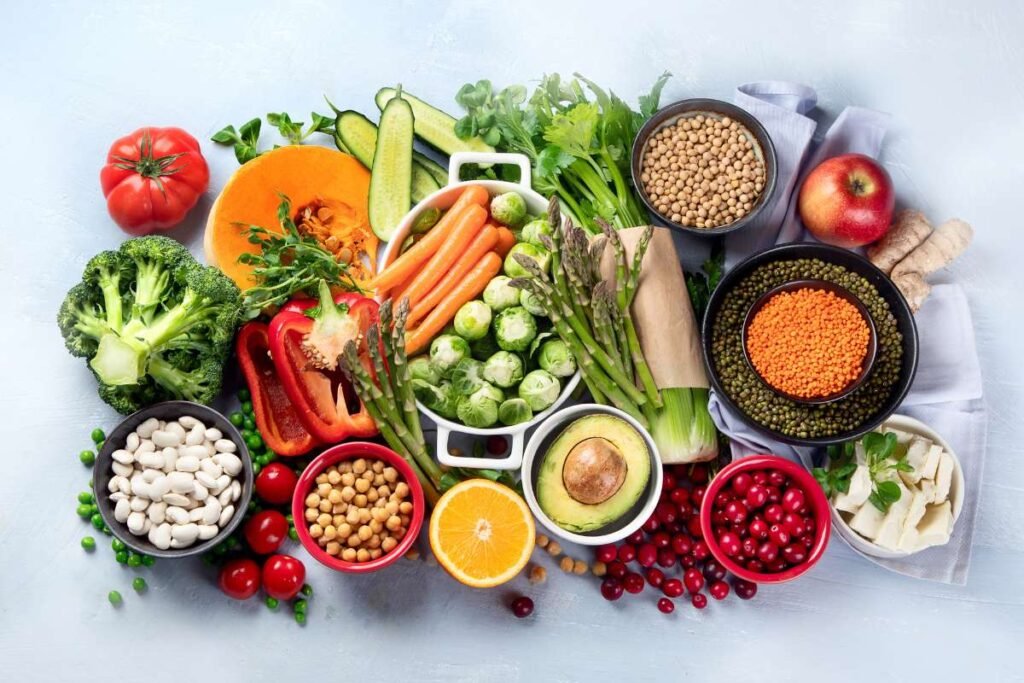
A vegan diet is a diet that excludes all meat and animal products. This means that cow milk is substituted with almond milk. A vegan diet is often associated with good overall long-term health. According to the American Institute of Cancer Research, even though a vegan diet is linked with a lower risk of cancer, the risk is similar to a vegetarian diet. A vegan diet can reduce the risk of prostate cancer in men and breast cancer in women.It is also one of the diet for cancer prevention.
- Fruits: Apples, bananas, strawberries, grapes
- Vegetables: Broccoli, kale, eggplant, mushrooms, carrots, potatoes
- Whole Grains: Rye, buckwheat, barley, oats
- Nuts: Almond, cashews, walnuts, Brazilian nuts
Also Read :- Plant-Based Diets Linked to Lower Risk of Major Diseases, Comprehensive Study Reveals
4. Mediterranean Diet
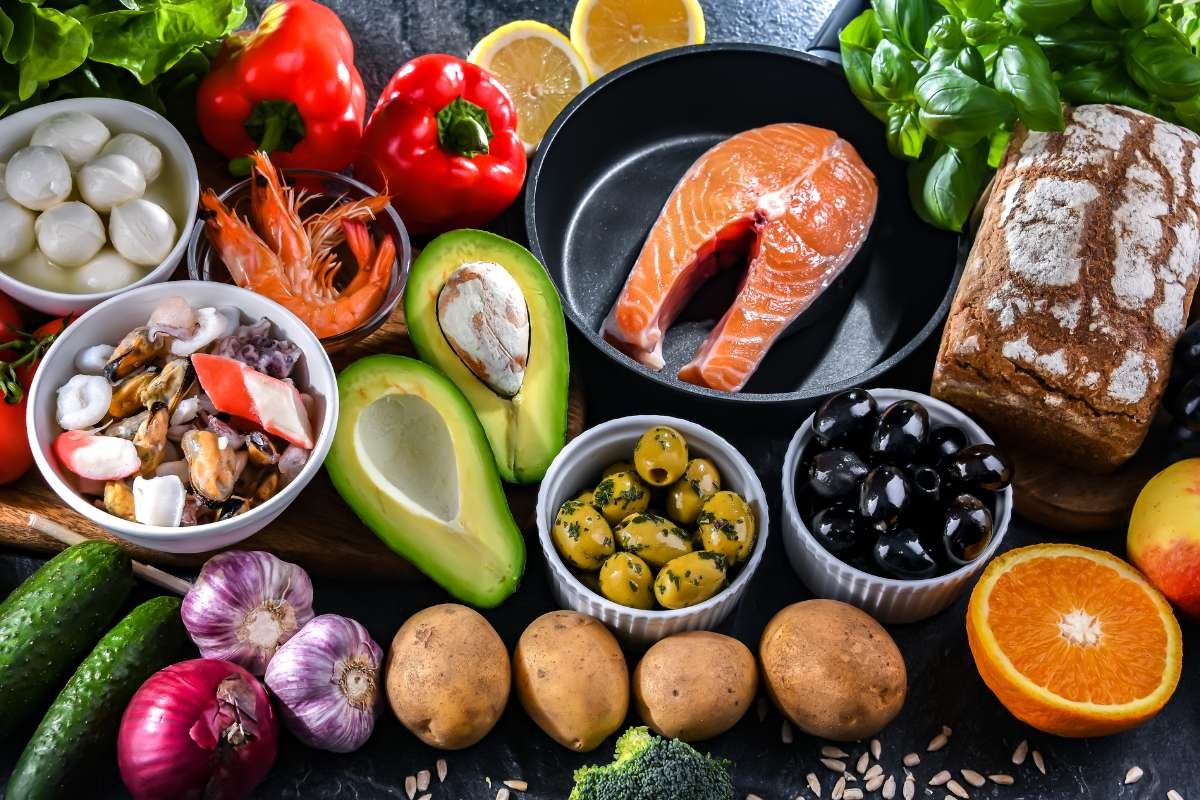
It is a diet that includes foods from countries that border the Mediterranean Sea. These countries are France, Spain, Greece, and Italy. According to the American Institute of Cancer Research, many studies link the Mediterranean eating pattern with a lower risk of developing cancer. This diet influences weight gain. Assessing this diet has proven difficult due to the variety of different foods and styles of cooking. But, compared to a diet heavy in sugar and sweet, this is definitely a good diet for cancer prevention.
- Fruits: Apples, bananas, pears, melons
- Vegetables: Tomatoes, kale, cucumber, turnips
- Whole Grains: Rye, buckwheat, barley, oats, brown rice
- Seafood: salmon, sardine, trout, oyster, clams
Also Read :- The Best Mediterranean Diet Apps for a Healthier Lifestyle
5. Flexitarian Diet
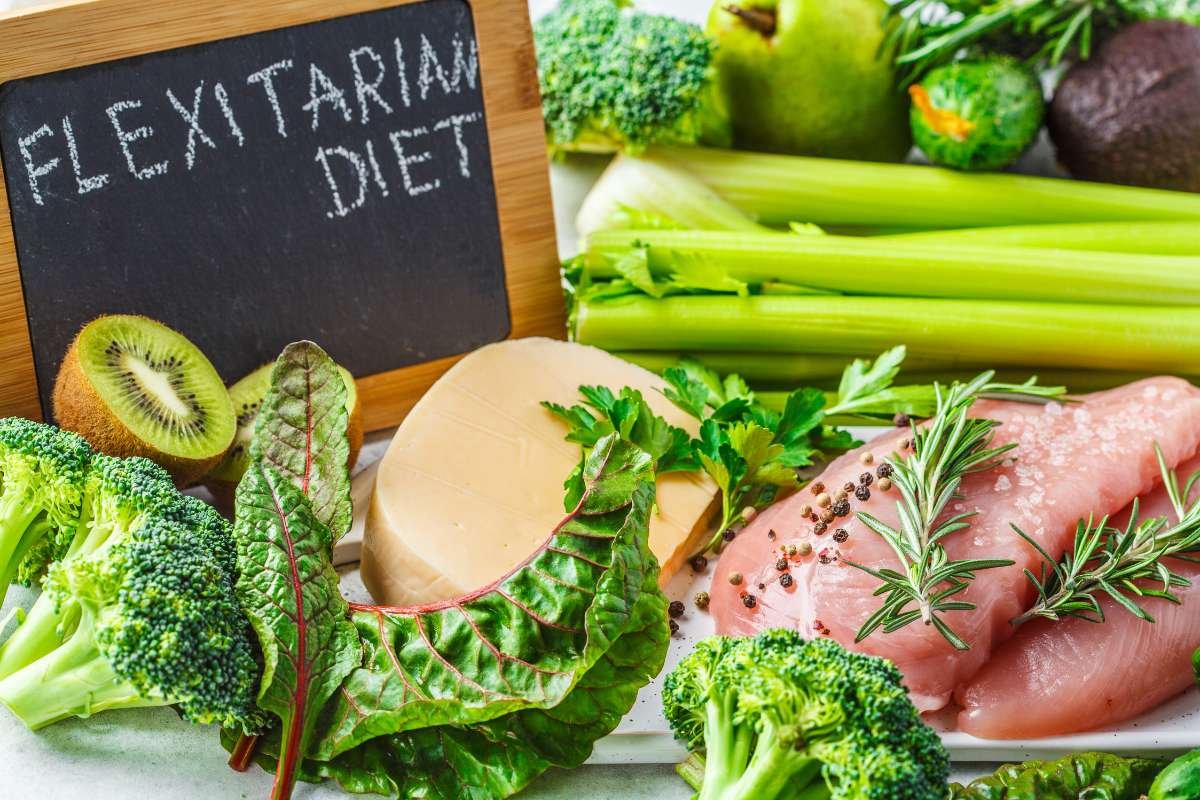
The Flexitarian Diet was created by dietician Dawn Jackson Blatner. This diet allows people to enjoy the benefits of eating vegetarian foods while still enjoying products like meat, fish, and dairy. This diet focuses on eating plant-based foods while allowing meat and animal products in moderation. As the name suggests, it’s more flexible than a vegetarian or vegan diet. A flexitarian diet, which is rich in fiber and whole grains, reduces the risk of cancer. Along with this, the diet also includes non-starchy vegetables and fruits, which can also be beneficial. Fruits: Apples, berries, grapes, cherries
- Vegetables: Carrots, Brussels sprouts, cauliflower, peas, and corn
- Whole Grains: Quinoa, buckwheat, farro, teff
- Proteins: Soybeans, legumes, lentils, tofu
Now that you know about the diet for cancer prevention, let us take a look at some foods that you should avoid. Foods that might increase the chances of cancer.
What are the Foods that Increase the Risk of Cancer?
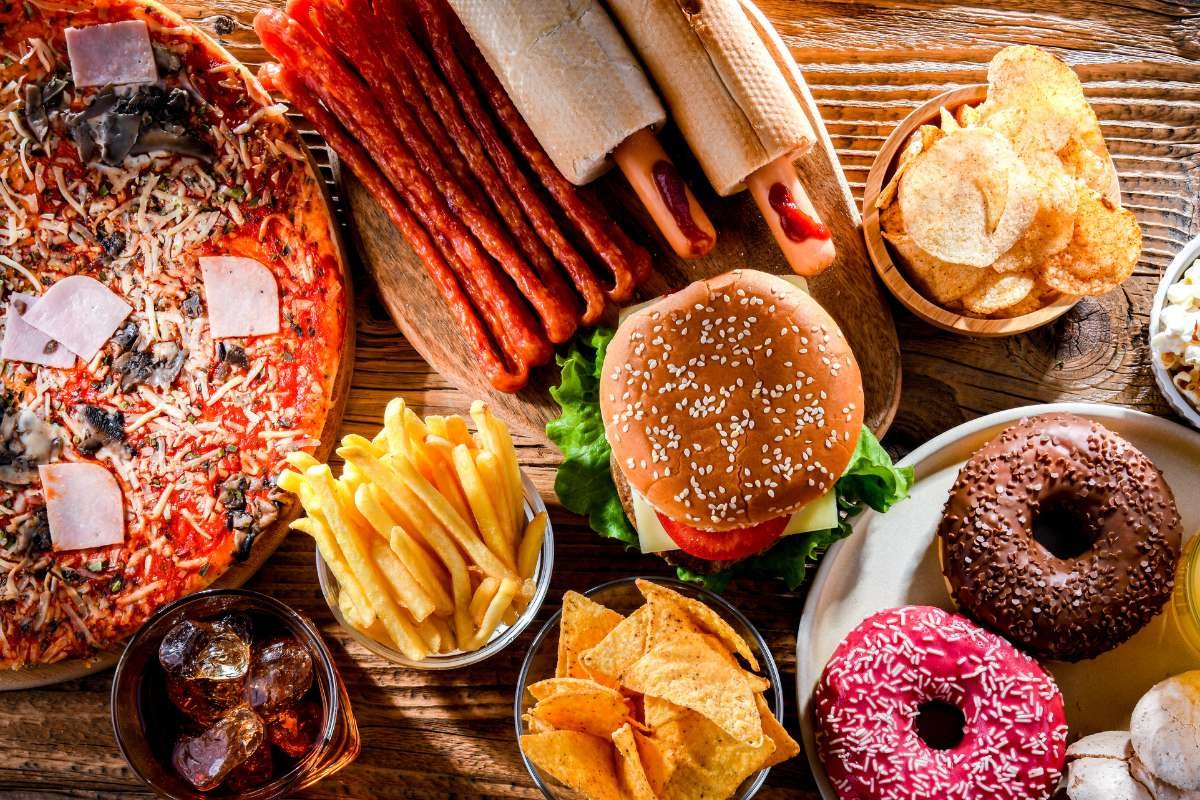
1. Alcohol:
Alcohol is linked to several types of cancers, mainly throat, liver, pancreatic, and breast cancer. Alcohol causes damage to tissues, which can lead to changes in the cell’s DNA, increasing the risk of cancer.
Also Read :- Alcohol’s Effects on the Body: Why Alcohol Is Slowly Turning Against Your Body?
2. Ultra-Processed Foods:
Ultra-processed foods and drinks have increased levels of sodium and sugar. The high calories and low nutritional value can lead to obesity. And obesity, in turn, can increase the chances of cancer.
Also Read :- Eating Ultra-Processed Foods Linked to Stroke and Cognitive Decline, Study Suggests
3. Processed Meats:
Another type of food that comes with the heightened risk of cancer is processed meats. Processed meats refer to any meat that has been preserved or has undergone changes to its shape and flavour. These meats are often preserved using nitrates, which can increase the risk of colorectal and stomach cancer. Hence, it is definitely a food to avoid in a diet for cancer prevention.
Conclusion:
Ultimately, nutrition is one of the major aspects that we can control. While genetics and lifestyle factors play a major role in the chances of getting cancer, having a healthy and balanced diet for cancer prevention can boost immunity and strengthen the body. The diet for cancer prevention has goal not to restrict yourself but to make mindful choices that improve long-term health. By embracing a preventive diet with healthier lifestyle choices, you can ensure a bright and long-lasting future.
FAQ
1. What beverages increase the risk of cancer?
A. Overconsumption of Beverages like alcohol and sugary drinks can increase the chances of getting cancer.
2. What junk foods increase the risk of cancer?
A. Ultra-processed foods like chips, packaged sweets, and snacks increase the risk of cancer.
3. How can I reduce the risk of cancer apart from diet?
A. You can reduce the risk of cancer by maintaining a healthy weight and getting regular cancer screenings.

